Bartle Clunes Introduction and Chapter 1
He was either going to ask her to marry him or he was going to buy one of her dogs. He hadn't decided. The only thing he knew was that he was done living alone.
For those of you who have not yet met Bartle Clunes, here is Chapter One. Bartle Clunes is a story of a small settlement in the California foothills in 1949. It is a gentle tale of rescue and redemption, of making room in one’s life for the most unlikely people. It is a funny and fine testament to the transformative power of friendship, and how it changes one life and the life of an entire community. I guarantee you will love knowing the people of Riles Crossing as much as I do. Pack your bag and come to the foothills with me.
Here are a few words about Bartle CLunes from Substack writer
:"It was so much fun to sit down with this gentle story of people rebuilding their lives from a point where everything stalled. With so much angst in life these days, it's a relief to relax with a story that is not filled with mayhem, demons, overwhelming challenges, and outlandish characters. Bartle shows how just the daily chores, the surprise visitors passing through town, and the mundane needs can provide plenty of fodder for the element of conflict in a story, yet show us how people can solve those problems, meet the challenges of new ventures, and grow productive and nurturing communities with very little more than their will, elbow grease, and cooperation."
Chapter 1
El Dorado County, Sierra Foothills, 1949
Bartle Clunes looked at his reflection briefly in the old mirror hanging near the kitchen door. For want of a comb, he wet his hand at the faucet and smoothed down the mouse-brown hair on top of his head. He whacked his hat against his thigh a couple of times, sending the dust flying, and put it on his head. Stepping out onto the sagging porch, he surprised three morning crows in the empty yard. They barked the usual insults at him and hopped over to the trough as he walked by.
Setting out across the barren fields, he could sense the subtle changing of the season, he felt snow coming. The sky was clear, the air had a sharp bite and a dampness to it, the frosted stubble of grass crunched under his tread. The tops of his tall worn boots flapped against his knees as he walked. He pulled his handkerchief out of his pocket and blew his nose.
Buttoning the collar of his dark wool coat against the late October chill, Bartle was heading over to the sunnier side of the draw to see Louvina McBean. He was either going to ask her to marry him or he was going to buy one of her dogs. He hadn't decided which. The only thing he did know was that he was done living alone.
Just before eleven, Louvina saw Bartle coming down the slope over a mile away. She recognized his long stride, his long legs, and she gave out a small moan. For some cockamamie reason she was sitting outside in the cold on a wooden stool that used to be a chair until its back fell off. She was picking through a bucket of wrinkled, slightly wormy apples, salvaging and peeling whatever edible parts she could find to make a pie. She knew it was too cold to be outdoors, but she needed air. I cannot breathe another minute inside that empty house, she thought.
The dog saw Bartle coming in their direction. He got up and loped out to meet him. Bartle crossed the creek and marched briskly up the rocky path, the brindled hound snuffled in circles at his boots, whined a bit and half-heartedly raised his hackles.
Slightly winded, his breath visible in the autumn air, Bartle took off his hat. “Morning, Louvina,” he said.
“Bartle Clunes,” she replied, casually looking up from her work. “What brings you over to our side this morning? Walking into town?”
“No, ma'am. Just stopping by to pay my respects. I heard Calum passed a while back and I'm sorry for it. Your brother was a good man.”
“He was good enough, I guess,” she said.
Bartle had no idea what to say to her next. He turned away, wringing his hat brim, looking over at her garden for inspiration. He found none among the twist of empty cucumber vines, the handful of brown corn stalks, the few sad cabbages, the dangling seed tomatoes that could have been yanked out weeks ago. Rusted garden tools leaned together on the fence like a bunch of drunken cowhands. He spotted a roll of rough twine under a bench where it had fallen, and bent to pick it up.
As he stood there looking around him for something to comment upon, Louvina waited. She was always patient with him. He was an intelligent man, she knew that. Well-read, good-mannered. Still, she thought, he is forty years old if he is a day – old enough to have overcome his shyness. She wondered why he invariably found it so difficult to talk to her. He was wondering the same thing.
“How are you keeping, then, Louvina?” he asked, finally.
“I'm good, Bartle. Glad to be among the upright and the living, and to have been given another day to atone for my sins,” she said with a laugh.
He smiled at that, shoved his hands into his pockets and kicked at a weed. After a time, he ventured, “I guess you'll be fixing to go back to Iowa now Calum is gone?”
“Iowa? Why, no. This is my home now,” she said. “My brother saw fit to leave this house to me. I wasn't always his favorite, you know, but there was nobody else left to give it to, really.” She rose from the stool, picked up the chipped enameled bucket, her knife and bowl. “We best get out of the chill, Bartle, my hands are turning blue out here. Come away in. I'll make us some coffee.”
“I wouldn't want you to go to any trouble,” he said, following her into the kitchen a little too closely and too quickly for that to be believed.
Bartle sat down at the blue formica table on a rickety chair. He noticed a little rust on the metal table legs. A folded piece of cardboard was stuck under one of the legs to stop the wobbling. He saw the kitchen was newly-painted yellow, bright as a June day. He thought maybe the curtain at the window was new. Louvina put the percolator on the Wedgwood and lit the burner with a wooden match.
“You've made some improvement to this old house, I see. You did this yellow paint yourself?” he asked.
“I did,” she nodded, “and I sewed that curtain. Made it from two flour sacks. I don't know what got into me. A sudden attack of domesticity, that I have since recovered from, but it was just looking so sorry and worn-out around here. It made me feel sorry and worn-out myself, to tell you the truth.” She paused, looking around at her handy work, hands on her hips. “The kitchen was easy enough to spruce up,” she said, “but it'll take a bit more than paint to spruce up Louvina McBean, apparently.”
He didn't know what to say to that. Instead, he quietly studied her kitchen. It was clean and orderly as usual, though he could see the linoleum was curling up under the stove. One torn place was held down with a few mismatched tacks. It all wanted replacing in his opinion. One shelf was hanging a little cock-eyed. I could straighten that in no time if she would let me, he thought. He noticed a four-year-old calendar on the wall, 1945, with a picture of a parrot on it. A ceramic string-holder shaped like a big-eyed cat was hung up near the stove and the makings of a soup were on the counter - dried peas in a colander, an onion, a limp celery.
“Well, I'll tell you one thing. It was good what you did, coming out here to look after your brother these past years, Louvina. It couldn't have been easy to leave your home and your life back there. You joke about atonement, but if you ask me, you have already earned your place in heaven ten times over for your sacrifices. You are a woman of kindness and courage.”
“Kindness? Well, maybe. Not sure courage enters into it,” she said, shaking her head. She brought out a pitcher of milk, a sugar bowl, two china cups. “In fact, Bartle, I had no choice, really, after losing my husband to the influenza and my baby girl along with him. It was a sad, sad time, I’ll tell you. So many people were sick, dying before their time,” she sighed. “Seems so long ago now, a different life.” She paused, remembering, as she lowered the flame under the coffee pot.
“No, nothing was left there in Iowa to hold me except for memories. I was at odd's ends, and I was right glad to be of some use out here in California. I came in '43, and I took to these foothills right off. I like it here. Anyway, Calum was no trouble. He didn't need much tending to until near the end. I did what I could for him and he gave me a house.”
Bartle admired Louvina as she moved around her kitchen lost in a memory. She was tall and sturdy, comfortable looking. Her shoulders were square and her back straight. She had a solid, firm step. Her long red-brown hair hung easy in two loose braids like a girl's, though she must be past thirty-five. The baggy trousers and large flannel shirt she wore looked like they might have belonged to Calum at one time. Still, she is a handsome woman, he thought. He noticed on her left wrist five little freckles that mapped out the constellation of Cassiopeia, a perfect little “W”. He had a sudden desire to kiss it.
Louvina pushed a pile of catalogs, bills and newspapers out of the way and brushed up a handful of walnut shells from the table top. She set a plate of buttered raisin bread, a piece of white cheese and an apple in front of Bartle. She took a seat across from him and poured the coffee.
“Louvina, I want to ask you a question,” he said. She looked up at him. He looked down into his coffee. “You used to have a number of ... ah ... dogs around your place,” he said.
“Yes, I did. Calum left me with three hounds, and that was exactly three hounds too many in my opinion. I have already found good homes for two of them.”
“Well, I was wondering would you be willing to sell this other one to me then?” he said, pointing to Maggie, who was looking at Bartle, thumping his tail on the floor, doing what dogs do, which was mostly nothing.
“Sell you this dog? For heaven's sakes, Bartle. I guess I could sell you this dog, but I couldn't charge you more than a nickel, and even that might be asking too much. He is a sweet boy, but he's not worth a lick.”
He thought about that. “Well, that is as may be,” he nodded. “How about you pay me a nickel, then, and I'll just take him off your hands?”
“Now that's a heck of a bargain, that is!” She laughed again. “Let me think on it a minute.” She brushed crumbs off the table into her hand and dropped them into a saucer. “I tell you what I will do. I will gladly give you this dog, Bartle. But I'm thinking you might have to keep him on a chain night and day, or he might keep coming back here. This is the only place he's ever known.”
“No,” he said, shaking his head. “I haven't had a dog since I was a boy, but I ...I would never chain one up. Not for the life of me would I chain a dog.” He looked down at the table and was silent for a minute, thinking of something long past. “A dog will stay with you if you treat him kindly. Let him sleep inside next to the stove. Feed him. Dogs don't want much. But they surely do not want a chain, no more than does a man.”
Nor a woman, thought Louvina. She watched his face. Bartle Clunes was a fine looking man, she observed, not for the first time, and he was made even more attractive by the fact that he did not know it. Still more appealing was the fact that this rough-edged, solitary, reserved man seemed to like her company.
Bartle had never spent more than twenty minutes at any one time with Louvina in all the months he had known her. He had seen her a few times when he was purchasing a few pieces of rusty tilling equipment from her brother who could no longer work his land. He had sat at this table several times before, but she was always in the company of Calum whenever he saw her. After an hour with her all to himself he found he was regaining his power of speech to a degree.
“Louvina,” he said, “I hope you don't mind my asking you, but what things need mending around this house? I would like to offer you a hand now and again since you are on your own.”
“Well, now that’s mighty neighborly! Thank you, Bartle. I do think most everything is in good order around here, relatively speaking, that is. I keep it up as best I can. But, now I think about it, maybe you could give me some advice on how to construct a new cover for my spring? The old one is caving in from the damp,” she said. “I don't want some poor possum falling in there and drowning. Aside from the fact that it would be an inconvenient end for the marsupial, it would play hell with the quality of my drinking water.” Maggie was standing by the kitchen door, staring at it. She went over to let him out.
“Yes, ma’am, I sure could do that for you. I’ll bring along some scraps of wood to make the new one first thing next week. Should be no trouble to set aright.”
“And, well... now that you offer,” she said, “I have a mind to order a roll of linoleum for the kitchen from Montgomery Ward. I think I could lay it myself,” she said, “but I could use a hand moving the stove and the refrigerator if you have the time.
He assured her he had nothing but time.
Thanks for reading Chapter 1 of Bartle Clunes. His story can be found in its entirety at the top of my home page. The print version is now available again. Write for information at bassanois@cruzio.com





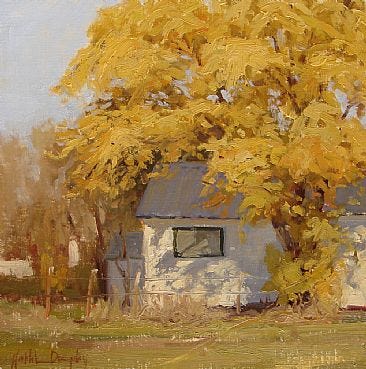
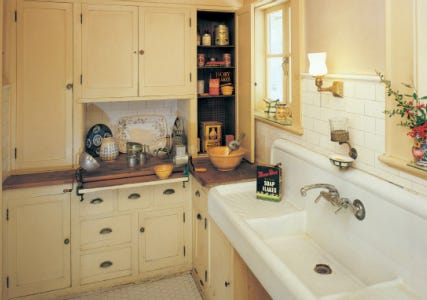
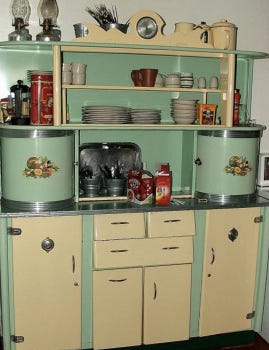

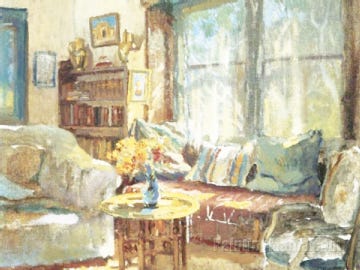
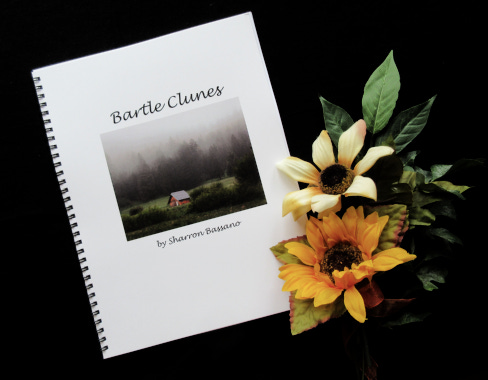
I enjoyed reading this again. The setting, the dialog, the characters; all speak to a simpler era. I really need to go back and read the whole Bartle Clunes collection. It's on my TBR list.
Of course!!! I will try chapter 2, and the whole book, and every book you write! 😍✍️ 😍♥️